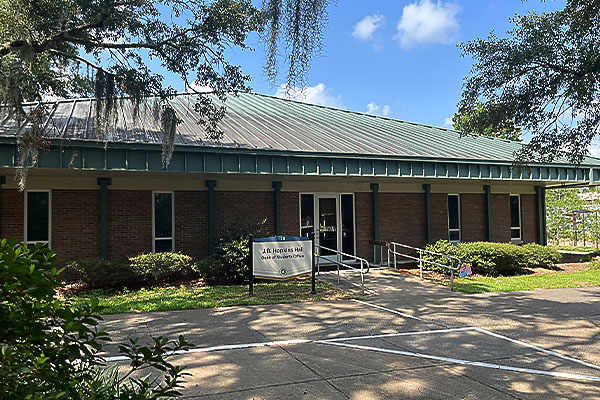Parents and Families
The Dean of Students Office encourages students to take responsibility for their college experience. We know that students greatly benefit from the continued support and involvement of their parents, guardians and families.
How Can I Support My Student in Navigating the Conduct Process?
Encourage Your Student to:
- Participate in the process. Students are not required to participate in the process in order for the case to be resolved. However, it’s important for your student to share their side of the story and have their voice heard.
- Accept responsibility for their actions and express what they will do to learn and grow from the incident to avoid future misconduct.
- Familiarise themselves with the Student Code of Conduct, and the Academic Code of Conduct processes are clearly outlined to include student rights, expectations, and timelines.
- Encourage your student to prepare for the Educational Conference or hearing by gathering relevant information/evidence.
- Check their UWF student email and read any official letters. UWF students are responsible for information communicated through this medium, including monitoring their email for communications from UWF.
- Discuss with you what sanctions were applied (if applicable), when they must complete the sanctions and what they learned from the process.
- Talk to you about expectations and future behavior.
Working Together
The Dean of Students Office encourages partnerships with student’s families and welcomes communication with our office via email or phone.
FERPA
Section 1002.225, Florida Statutes, requires state educational institutions to comply with the Family Educational Rights and Privacy Act (“FERPA”) codified at 20 U.S.C. s 1232g, and the federal regulations issued pursuant thereto at 34 C.F.R. Part 99. FERPA provides certain rights to university students concerning their student educational records.
FERPA prohibits educational institutions from disclosing information from a student's educational record to any third party, including parents, without the student's consent, with some exceptions. There are exceptions to FERPA concerning the release of information to parents:
- Parents of students who are under 21 may be notified of drug and alcohol violations. The University of West Florida may notify parents of these violations.
- If the health or safety of a student is in question, the information can and will be released.
Learn more about FERPA.
| Common Terms | Definition |
|---|---|
| Standard of Proof | The standard of proof used to determine the student's responsibility is based on a preponderance of evidence. This means that the information presented supports the finding of whether it was more likely than not that the violation of the Student Code of Conduct or the Student Code of Academic Conduct occurred. |
| Advisor | The term advisor refers to any one person chosen by the respondent, alleged victim, or witness to aid them through the disciplinary process. This includes an advocate or legal representative. |
| Disciplinary Probation | Disciplinary probation is a written disciplinary sanction notifying a student or student organization that the behavior is a serious violation of University standards. Any additional violations occurring during a probationary period may result in more serious sanctions. |
| Sanctions |
Sanctions are designed to help students learn and grow from their experiences. Failure to complete sanction(s) may result in Student Code of Conduct charges filed and/ or an OSRR hold being placed on your account. Sanctions can range from a disciplinary reprimand to expulsion, depending on prior conduct history, the severity of the violation, mitigating circumstances and aggravating circumstances.
|
| OSRR Hold | An OSRR Hold could result from failure to resolve an issue. Such holds will impose restrictions, including but not limited to the ability to register for classes, request a transcript, or withhold the issuing of a degree/ diploma. |
| Suspension | A student who is suspended is required to leave the University for a specific period of time. A student suspended for violating the Student Code of Academic Conduct may not visit or come onto any UWF campus without specific written permission of the Provost. A student suspended for violating the Student Code of Conduct may not visit or come onto any UWF campus without specific written permission of the Vice President of Enrollment and Student Affairs. |
| Expulsion | A student who is expelled is permanently deprived of the privilege to continue at the University in any capacity. A student expelled for violating the Student Code of Academic Conduct may not visit or come onto any UWF campus without specific written permission of the Provost. A student expelled for violating the Student Code of Conduct may not visit or come onto any UWF campus without specific written permission of the Vice President of Enrollment and Student Affairs. |
Frequently Asked Questions (FAQ) on Student Conduct
In accordance with the Student Code of Conduct and the Student Code of Academic Conduct, students are entitled to have any one person serve as their advisor. You must provide the name and role of the advisor to the Dean of Students Office in writing at least three business days prior to any scheduled meeting/hearing.
Please note that advisors are permitted to actively participate in student conduct hearings. However, during academic misconduct hearings, advisors may only engage with the charged student in a manner that does not disrupt the proceedings and may not address any member of the committee at any point during the hearing.
Charges by public authorities will not prevent the University from charging your student or your student's organization with violations of the Student Code of Conduct. If you are charged by outside authorities with an act that is also a violation of a University regulation, policy or the Student Code of Conduct, the University may but is not required to delay its proceedings pending the outcome of the off-campus proceedings.
The University reserves the right to amend its charge(s) based on information obtained through an outside proceeding when that information is relevant to activity adversely affecting the University community. If the outside charges are dismissed, or not prosecuted/not heard, or if adjudication of guilt is withheld, such action will have no bearing on the University charges.
No, conduct processes would continue without your student's participation.
Yes, any student or student organization found responsible for violating the Student Code of Conduct may appeal the decision and/or the sanctions by submitting an appeal, in writing, to the Vice President of Academic Engagement and Student Affairs within 10 business days of the date of the decision letter. Students or student organizations found responsible by the Academic Misconduct Hearing Board for violating the Student Code of Academic Conduct may appeal by filing a written appeal with the Office of the Provost within 10 business days of the hearing decision notification letter.
All appeals are limited to grounds noted in UWF/REG-3.030 Student Code of Academic Conduct, section IX of the Student Code of Academic Conduct of the Student Code of Conduct and/or the Student Code of Academic Conduct.
The Student Code of Conduct, the Student Code of Academic Conduct, and all other University policies and regulations are available on the Policies and Regulations page.




